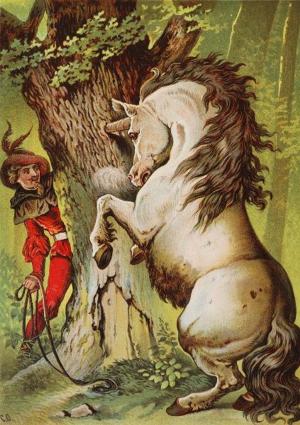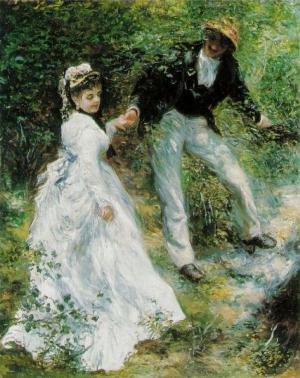More Science From an Easy Chair
Nonfiction, Religion & Spirituality, New Age, History, Fiction & Literature| Author: | Sir Edwin Ray Lankester | ISBN: | 9781465621610 |
| Publisher: | Library of Alexandria | Publication: | March 8, 2015 |
| Imprint: | Language: | English |
| Author: | Sir Edwin Ray Lankester |
| ISBN: | 9781465621610 |
| Publisher: | Library of Alexandria |
| Publication: | March 8, 2015 |
| Imprint: | |
| Language: | English |
I am writing in early September from Interlaken, one of the loveliest spots in Europe when blessed with a full blaze of sunlight and only a few high-floating clouds, but absolutely detestable in dull, rainy weather, losing its beauty as the fairy scenes of a theatre do when viewed by dreary daylight. It is the case of the little girl of whom it is recorded that "When she was good she was very good, and when she was not she was horrid." This morning, after four days' misconduct, Interlaken was very good. The tremendous sun-blaze seemed to fill the valleys with a pale blue luminous vapour, cut sharply by the shadows of steep hill-sides. Here and there the smoke of some burning weeds showed up as brightest blue. Far away through the gap formed in the long range of nearer mountains, where the Lütschine Valley opens into the vale of Interlaken, the Jungfrau appeared in full majesty, absolutely brilliant and unearthly. So I walked towards her up the valley. Zweilütschinen is the name given to the spot where the valley divides into two, that to the left leading up to Grindelwald, under the shadow of the Mönch and the Wetterhorn, that to the right bringing one to Lauterbrünnen and the Staubbach waterfall, with the snow-fields of the Tchingel finally closing the way—over which I climbed years ago to Ried in the Loetschen Thal. The autumn crocus was already up in many of the closely trimmed little meadows, whilst the sweet scent of the late hay-crop spread from the newly cut herbage of others. At Zweilütschinen, where the white glacier-torrent unites with the black, and the milky stream is nearly as cold as ice, and is boiling along over huge rocks, its banks bordered with pine forest, I came upon a native fishing for trout. He was using a short rod and a weighted line with a small "grub" as bait. He dropped his line into the water close to the steep bank, where some projecting rock or half-sunk boulder staved off the violence of the stream. He had already caught half-a-dozen beautiful, red-spotted fish, which he carried in a wooden tank full of water, with a close-fitting lid to prevent their jumping out. I saw him take a seventh. The largest must have weighed nearly two pounds. It seems almost incredible that fish should inhabit water so cold, so opaque, and so torrential, and should find there any kind of nourishment. They make their way up by keeping close to the bank, and are able, even in that milky current, to perceive and snatch the unfortunate worm or grub which has been washed into the flood and is being hurried along at headlong speed. Only the trout has the courage, strength, and love of nearly freezing water necessary for such a life—no other fish ventures into such conditions. Trout are actually caught in some mountain pools at a height of 8,000 ft., edged by perpetual snow.
I am writing in early September from Interlaken, one of the loveliest spots in Europe when blessed with a full blaze of sunlight and only a few high-floating clouds, but absolutely detestable in dull, rainy weather, losing its beauty as the fairy scenes of a theatre do when viewed by dreary daylight. It is the case of the little girl of whom it is recorded that "When she was good she was very good, and when she was not she was horrid." This morning, after four days' misconduct, Interlaken was very good. The tremendous sun-blaze seemed to fill the valleys with a pale blue luminous vapour, cut sharply by the shadows of steep hill-sides. Here and there the smoke of some burning weeds showed up as brightest blue. Far away through the gap formed in the long range of nearer mountains, where the Lütschine Valley opens into the vale of Interlaken, the Jungfrau appeared in full majesty, absolutely brilliant and unearthly. So I walked towards her up the valley. Zweilütschinen is the name given to the spot where the valley divides into two, that to the left leading up to Grindelwald, under the shadow of the Mönch and the Wetterhorn, that to the right bringing one to Lauterbrünnen and the Staubbach waterfall, with the snow-fields of the Tchingel finally closing the way—over which I climbed years ago to Ried in the Loetschen Thal. The autumn crocus was already up in many of the closely trimmed little meadows, whilst the sweet scent of the late hay-crop spread from the newly cut herbage of others. At Zweilütschinen, where the white glacier-torrent unites with the black, and the milky stream is nearly as cold as ice, and is boiling along over huge rocks, its banks bordered with pine forest, I came upon a native fishing for trout. He was using a short rod and a weighted line with a small "grub" as bait. He dropped his line into the water close to the steep bank, where some projecting rock or half-sunk boulder staved off the violence of the stream. He had already caught half-a-dozen beautiful, red-spotted fish, which he carried in a wooden tank full of water, with a close-fitting lid to prevent their jumping out. I saw him take a seventh. The largest must have weighed nearly two pounds. It seems almost incredible that fish should inhabit water so cold, so opaque, and so torrential, and should find there any kind of nourishment. They make their way up by keeping close to the bank, and are able, even in that milky current, to perceive and snatch the unfortunate worm or grub which has been washed into the flood and is being hurried along at headlong speed. Only the trout has the courage, strength, and love of nearly freezing water necessary for such a life—no other fish ventures into such conditions. Trout are actually caught in some mountain pools at a height of 8,000 ft., edged by perpetual snow.















